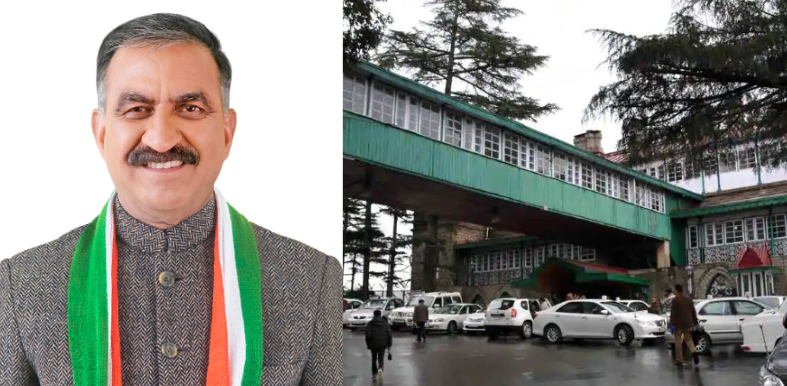APAR Reforms by CM Sukhu: Will Politicians’ Business Interests Undermine Accountability?

- How US Elections Could Impact and Benefit Indian Hill States Like Himachal - October 31, 2024
- Himachal’s Tourism Future Hinges on Effective Waste Management - October 29, 2024
- Kangra Airport Expansion: First Landowners Compensated - October 22, 2024
Shimla/Dharamshala: Chief Minister Sukhwinder Singh Sukhu’s recent overhaul of the Annual Performance Appraisal Report (APAR) system is a bold move aimed at increasing transparency and accountability among Himachal Pradesh’s key officials, including those in the Indian Administrative Service (IAS). However, the effectiveness of these reforms hinges on a crucial factor: the separation of political and business interests.
Revised APAR System: A Move Toward Greater Accountability
Under the proposed reforms, nearly 14,000 key officials will be evaluated based on performance outputs rather than traditional subjective ratings. The new system will replace the familiar “Outstanding,” “Very Good,” “Good,” and “Average” with a numerical grading scale. Officials will be assessed on three main indicators: the accomplishment of their annual work plan, work-related attributes, and personal and functional attributes. The introduction of negative marking for non-compliance with government orders or advisories aims to further enforce accountability.
Also Read: https://thenewzradar.com/himachal-faces-rupees-ninehundred-crore-loss-due-to-cloudbursts-but-no-aid-from-centre-cm-sukhus-jibe-at-kangana-over-enough-relief/
Chief Minister Sukhu has highlighted that these changes are designed to foster a more transparent and objective evaluation process. Officers will now receive their finalized evaluations, which is expected to promote professional development and enhance work performance. The APAR process will transition to an online system, streamlining operations with a deadline of December 31 for submissions.
The Crucial Role of Political Integrity
While the APAR overhaul represents a significant advancement in governance, its success is contingent upon a balanced power structure within the state. The presence of politicians with direct business interests poses a serious risk to the effectiveness of these reforms. Business engagements by politicians can undermine the transparency and accountability that the APAR system seeks to enforce. Such conflicts of interest can skew governance priorities and disadvantage the most vulnerable citizens, who lack the means to influence decisions.
Sukhvinder Singh Sukhu’s Vision for Transparent Governance
Chief Minister Sukhu’s initiative is part of a broader vision to enhance state governance by directly linking performance appraisals to work outputs and accountability. The reforms aim to improve efficiency and transparency by setting clear performance metrics for field-level officers and maintaining qualitative assessments for higher management.
The APAR reforms are a promising step towards better governance, their effectiveness will depend on ensuring that politicians’ business interests do not compromise the system’s integrity.




